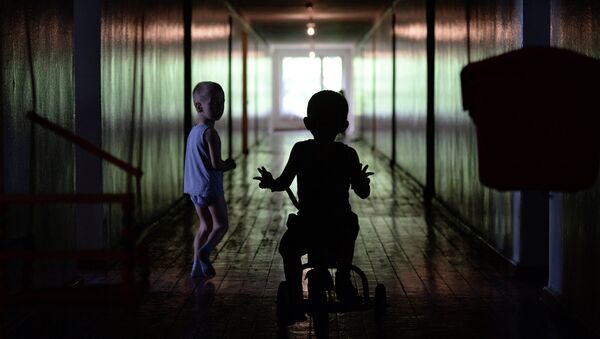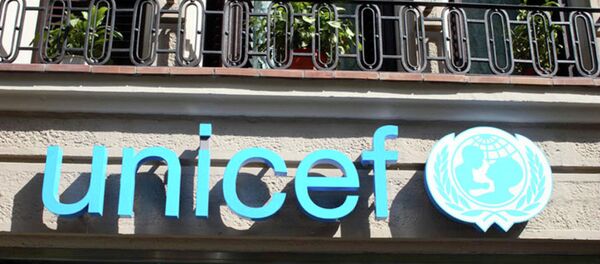"UNICEF remains deeply concerned about the impact on children and families of the ongoing violence in eastern Ukraine," Kristen Elsby, communication chief at UNICEF office for Central and Eastern Europe and the Commonwealth of Independent States told Sputnik Thursday.
On Monday, UNICEF reported that 2014 was a "devastating year" for 15 million children, caught up in ongoing conflicts around the world – in particular, in the Central African Republic, Iraq, South Sudan, the State of Palestine, Syria and Ukraine.
The scale of crises affecting children now is unprecedented. We must work to ensure a better world for #EVERYchild http://t.co/rMOGN8pIdO
— UNICEF (@UNICEF) December 11, 2014
"The situation for more than 1.4 million people affected by the fighting in eastern Ukraine remains serious, particularly for the thousands of children in the areas of ongoing conflict, as well as the 130,000 children who have been displaced within other regions of Ukraine," Elsby specified.
According to UNICEF spokesperson Najwa Mekki, apart from such consequences as malnutrition and restricted access to medical care and education, conflicts have a significant effect on children psychologically.
"Children in war live in fear: fear of where the next explosion will happen, fear of what will happen to them or their families, fear of whether they will ever go back to school. Some Syrian parents I have met in the refugee camps in Jordan and in Turkey told me how their children have become aggressive, disobedient. Others have complained that their children have become withdrawn, have nightmares and never want to leave their parent's side. The invisible scars of conflict," Mekki told Sputnik.
The Fund also reaffirmed its determination to promote rights of children and provide them with basic services around the world working together with its partners in 190 countries.



